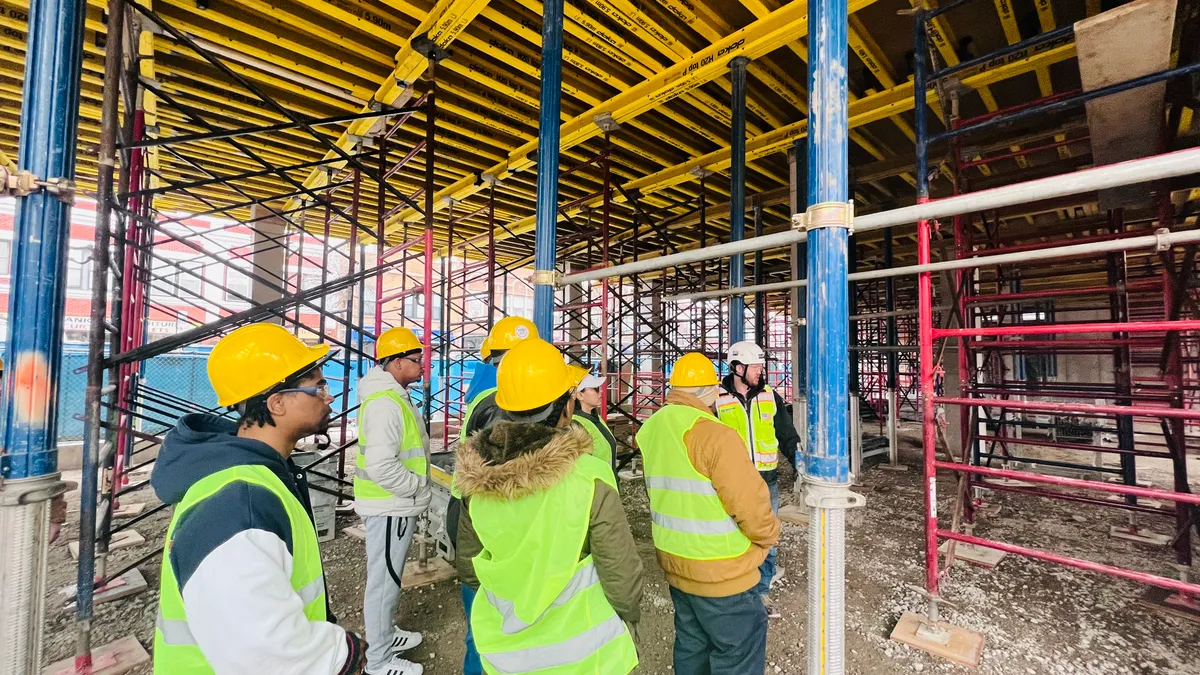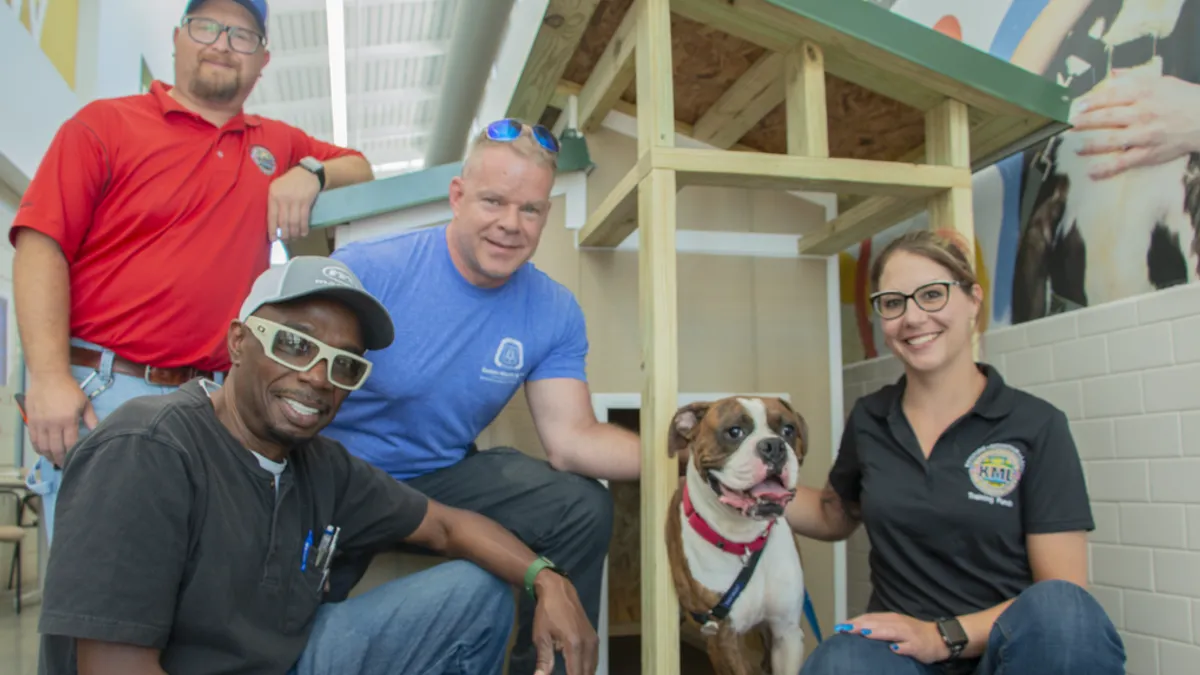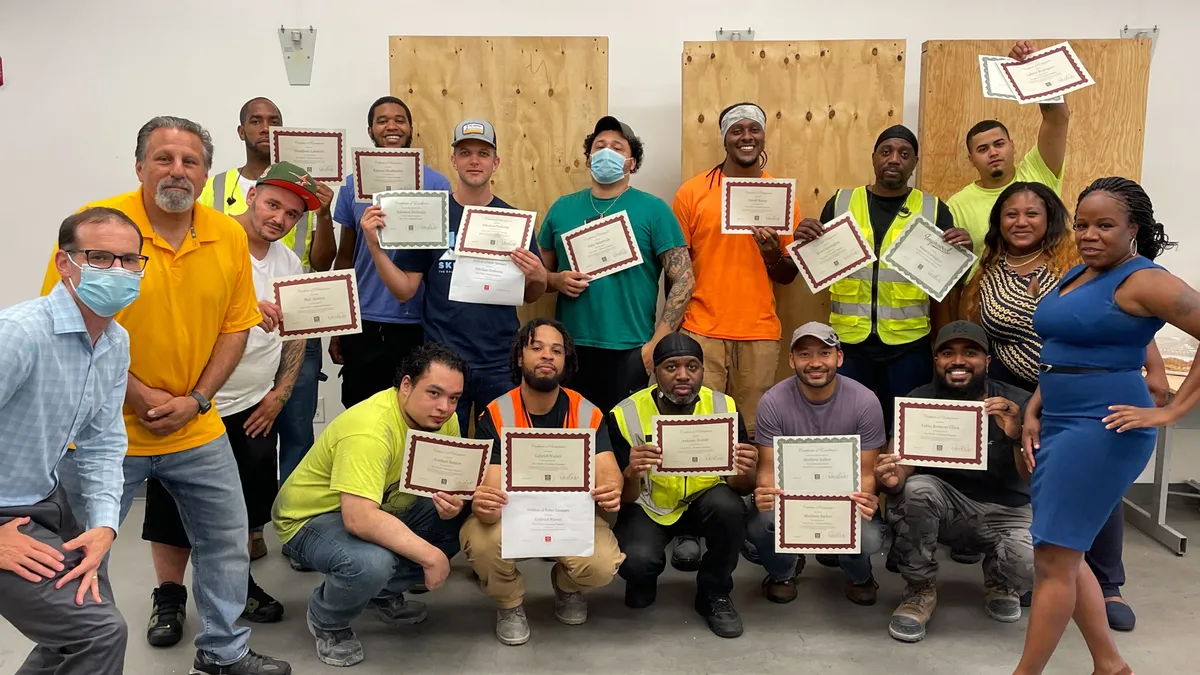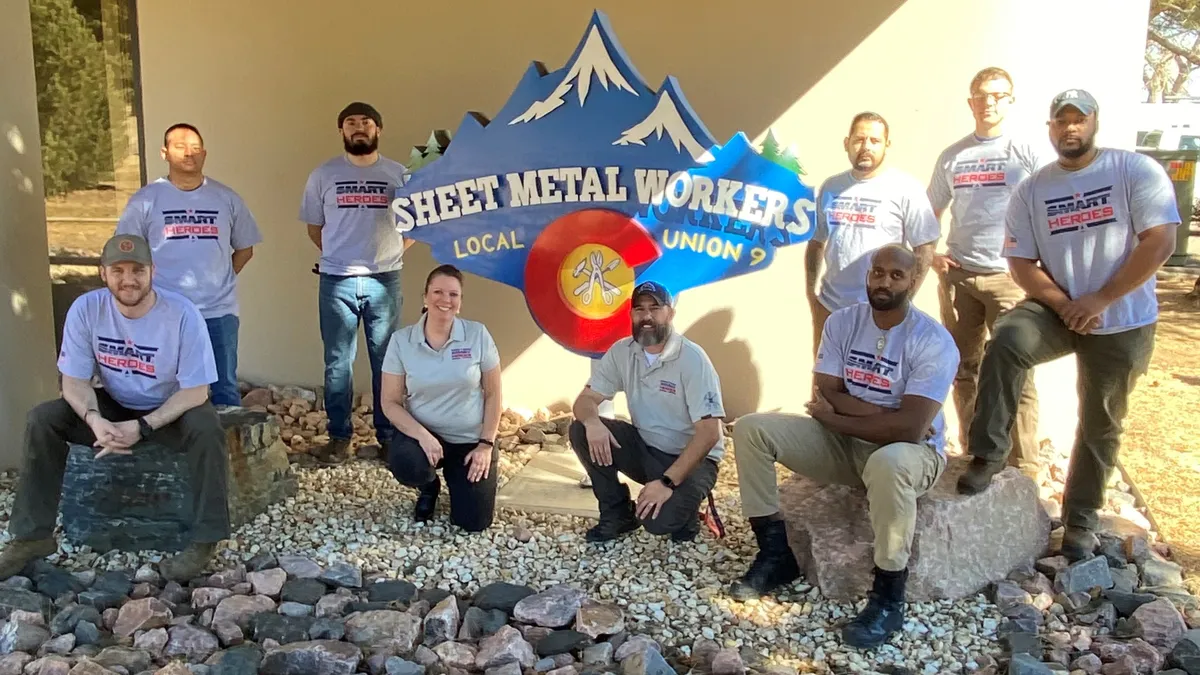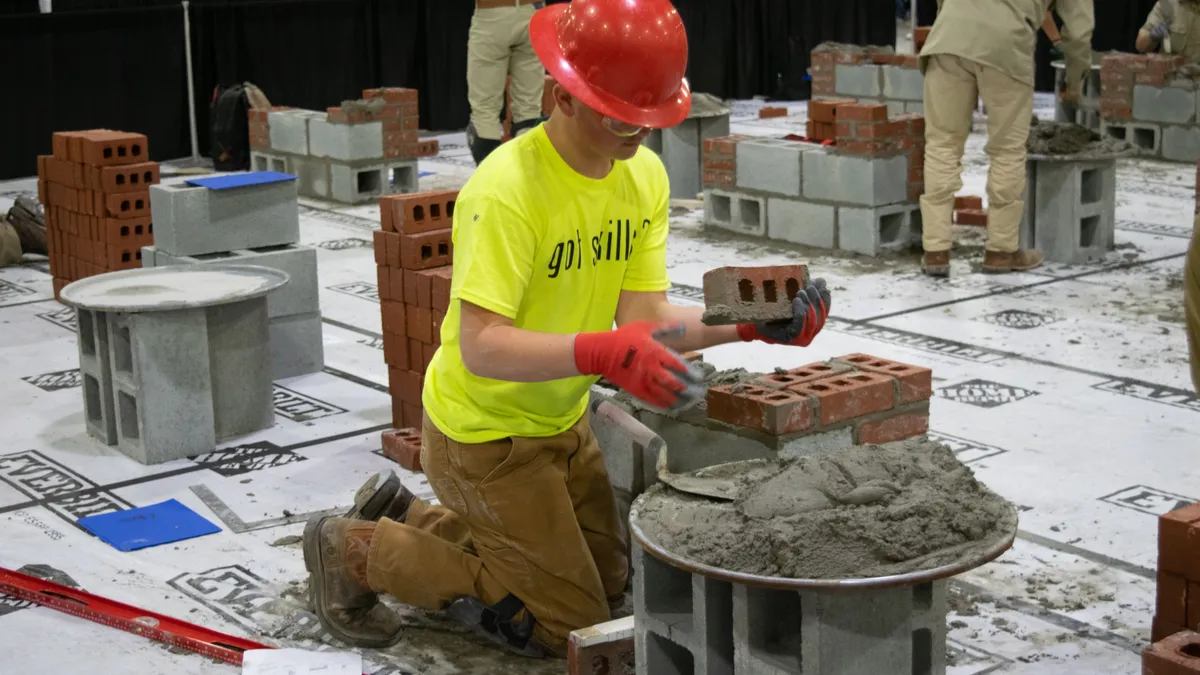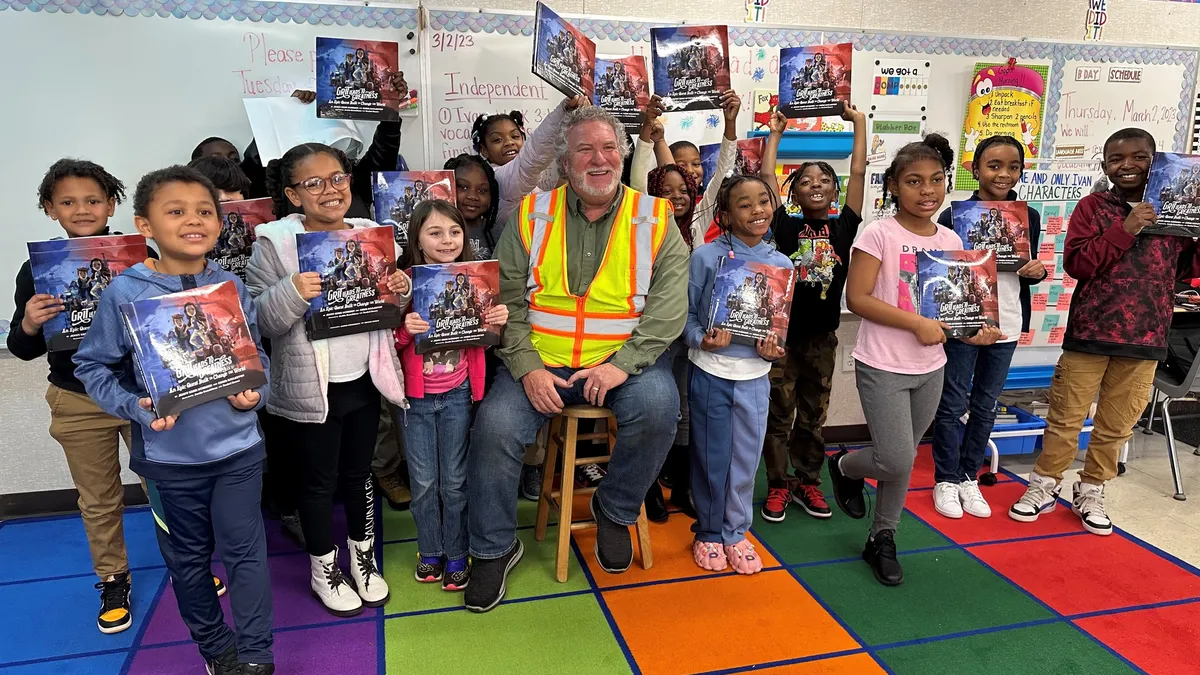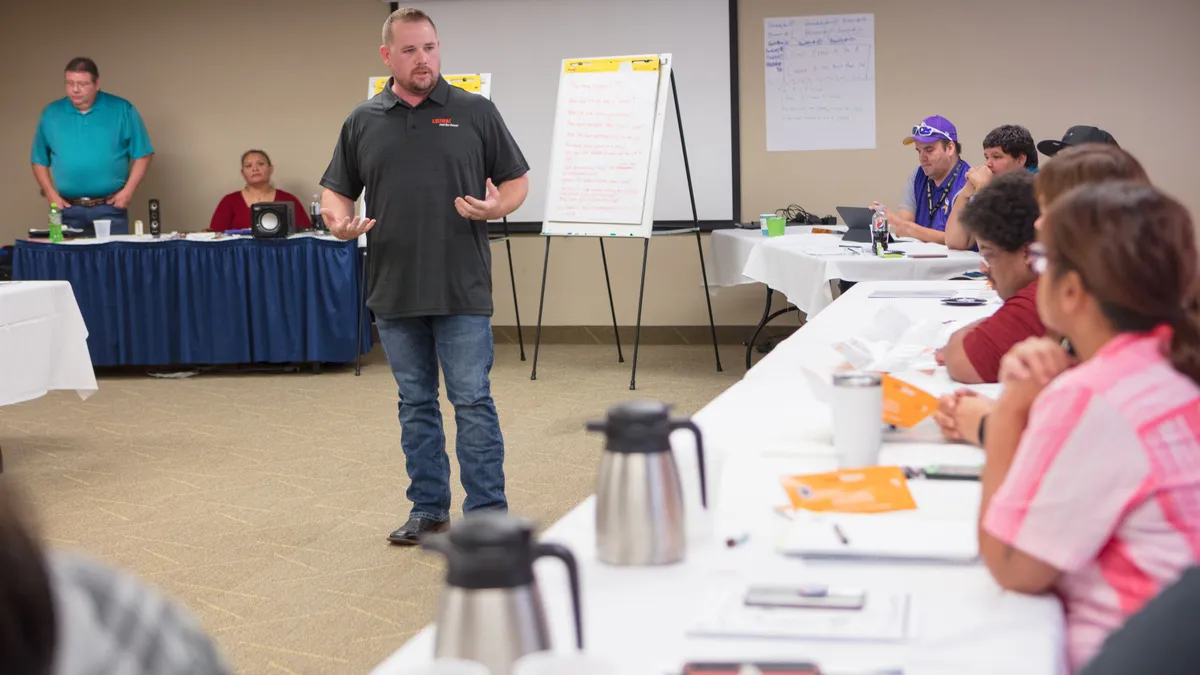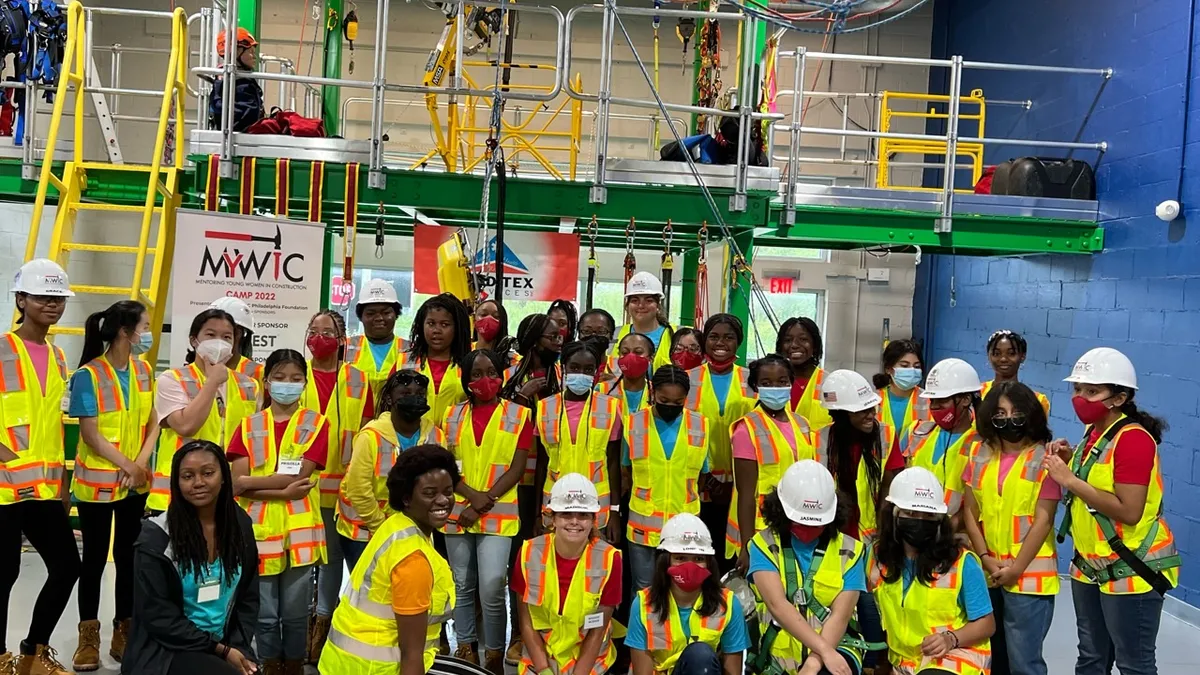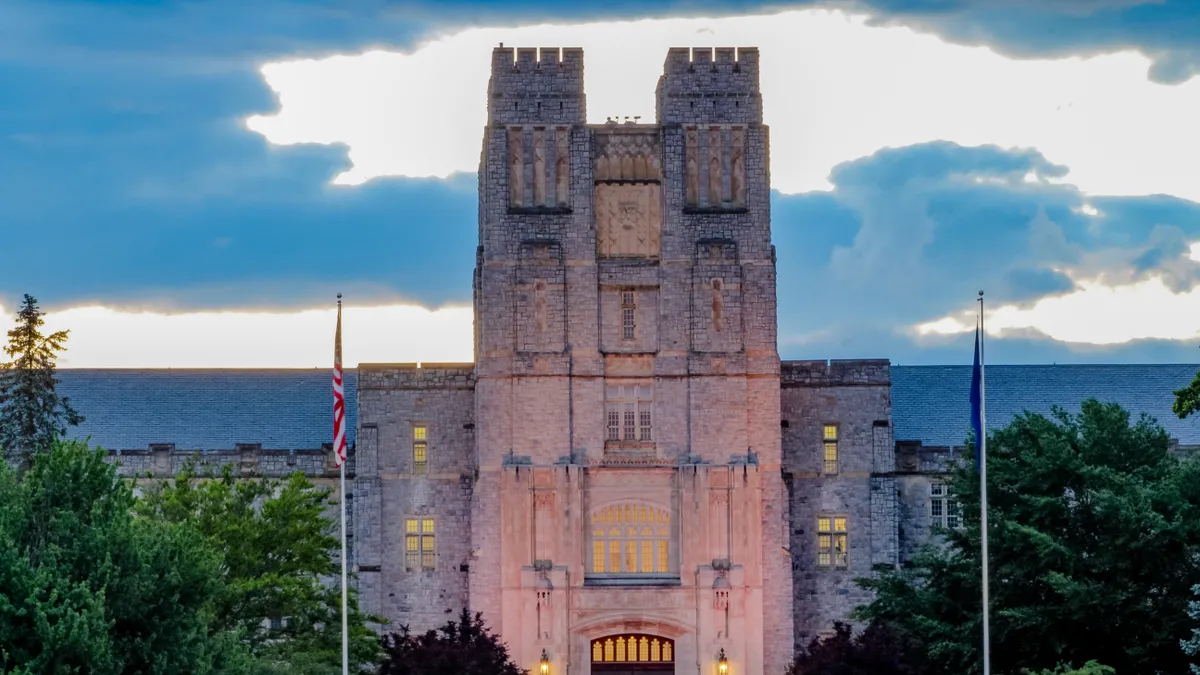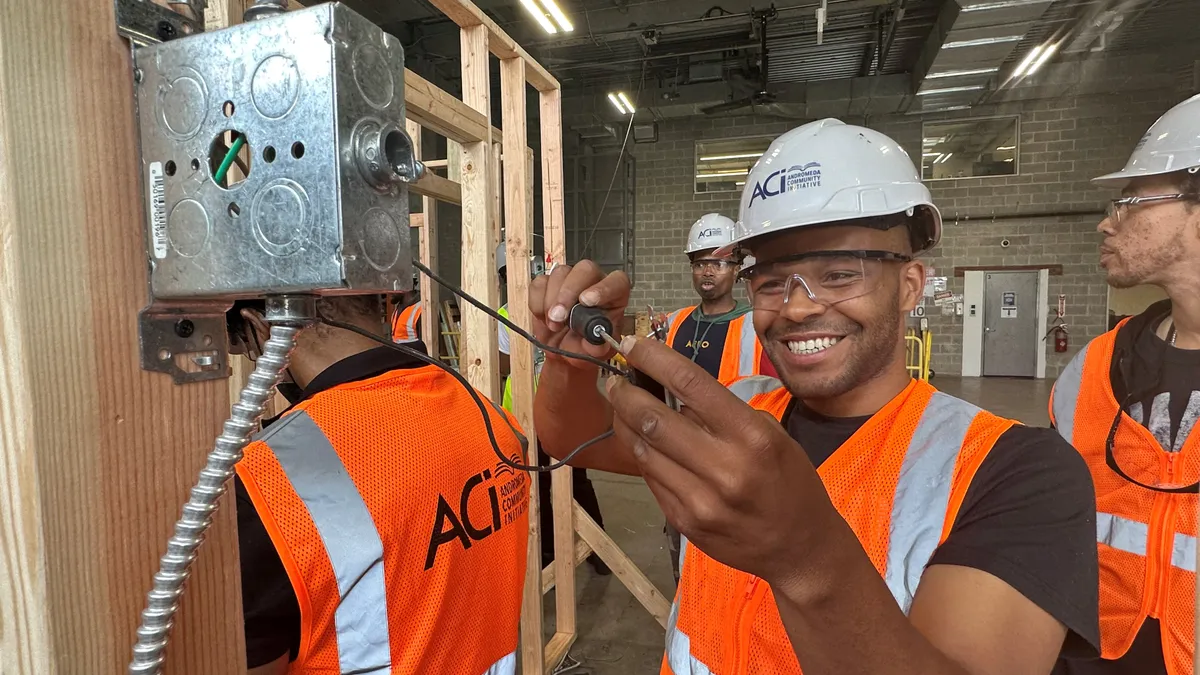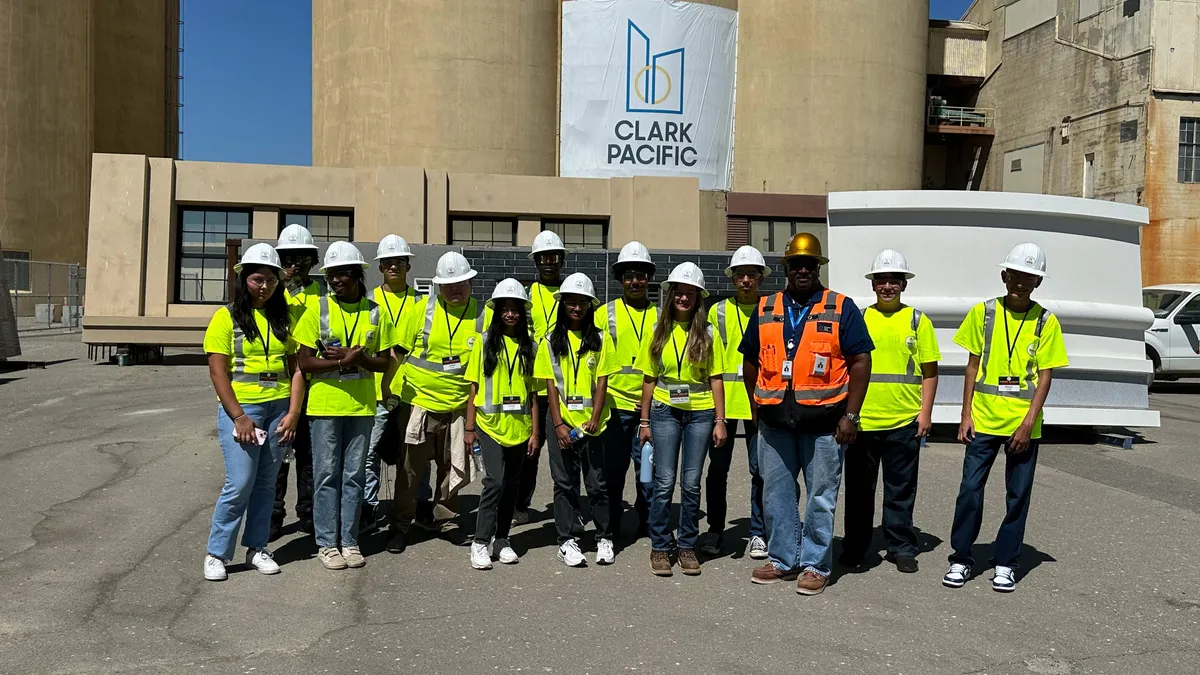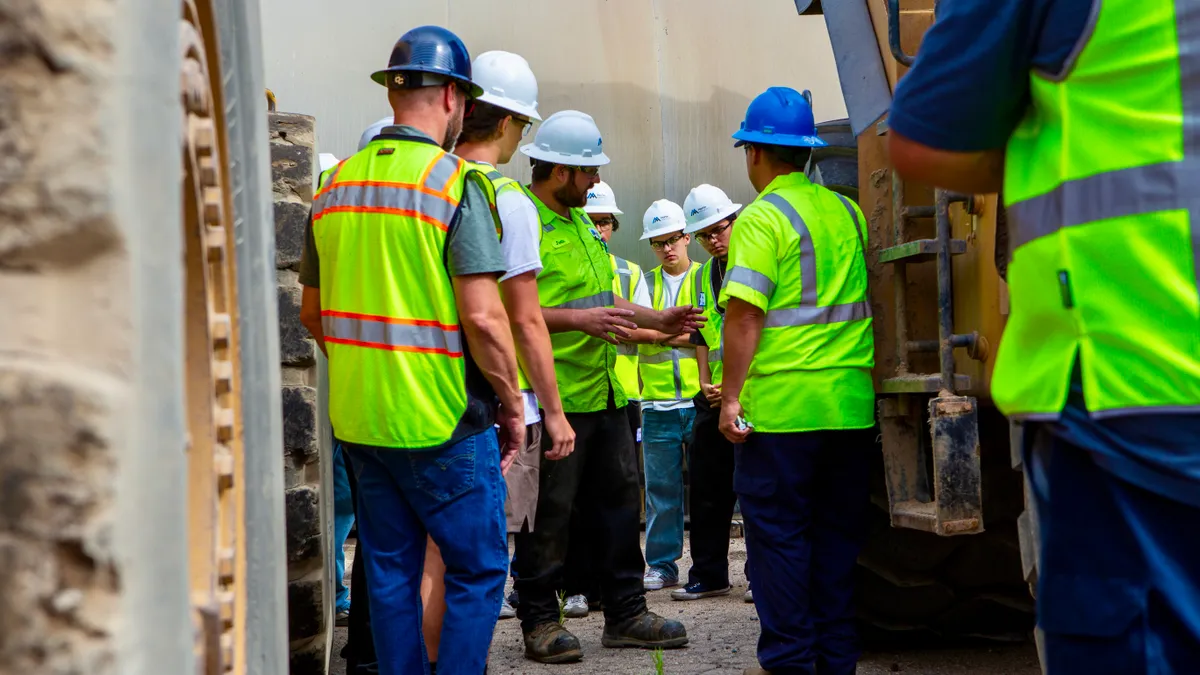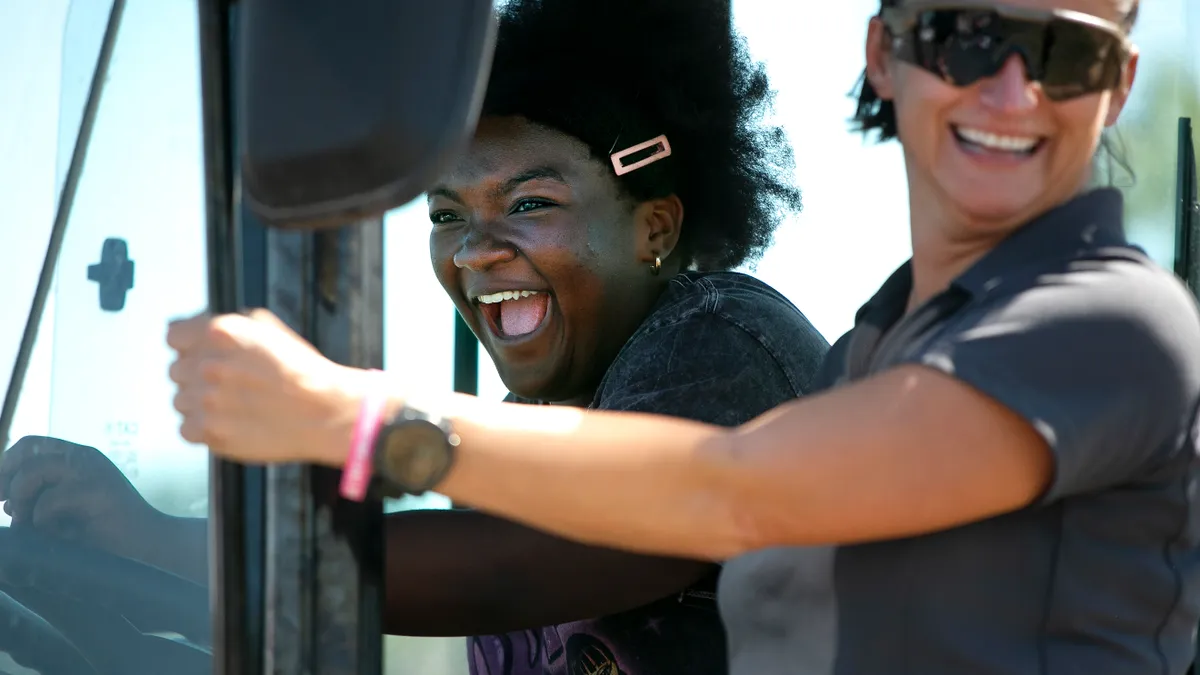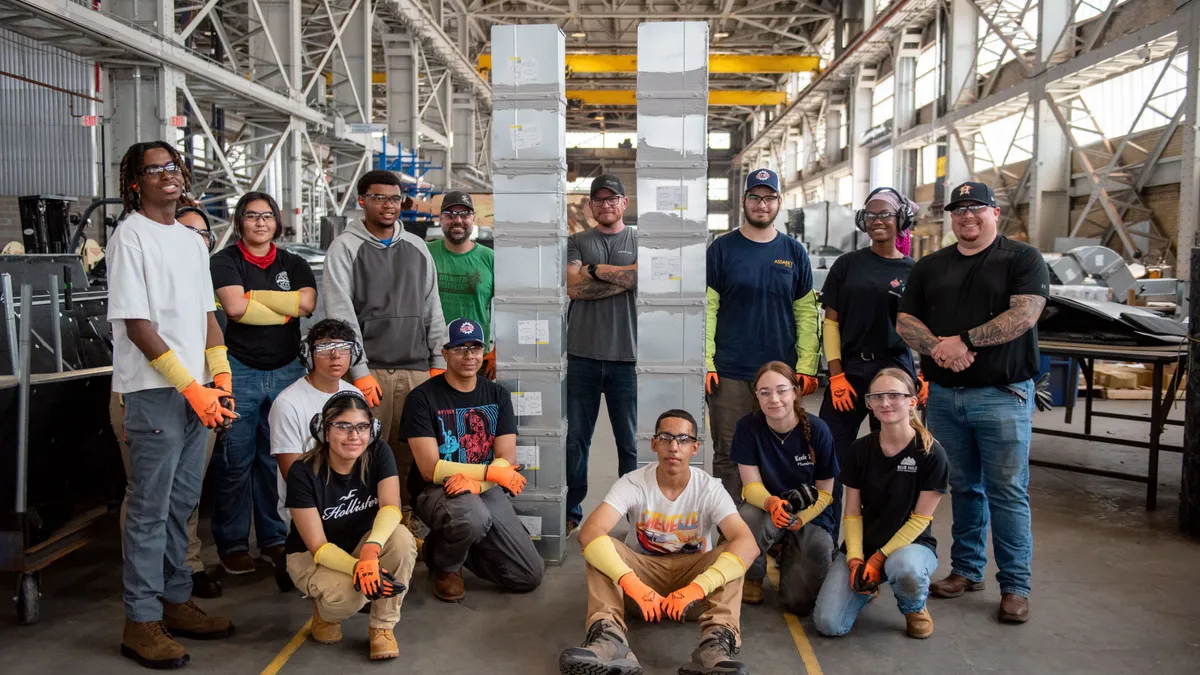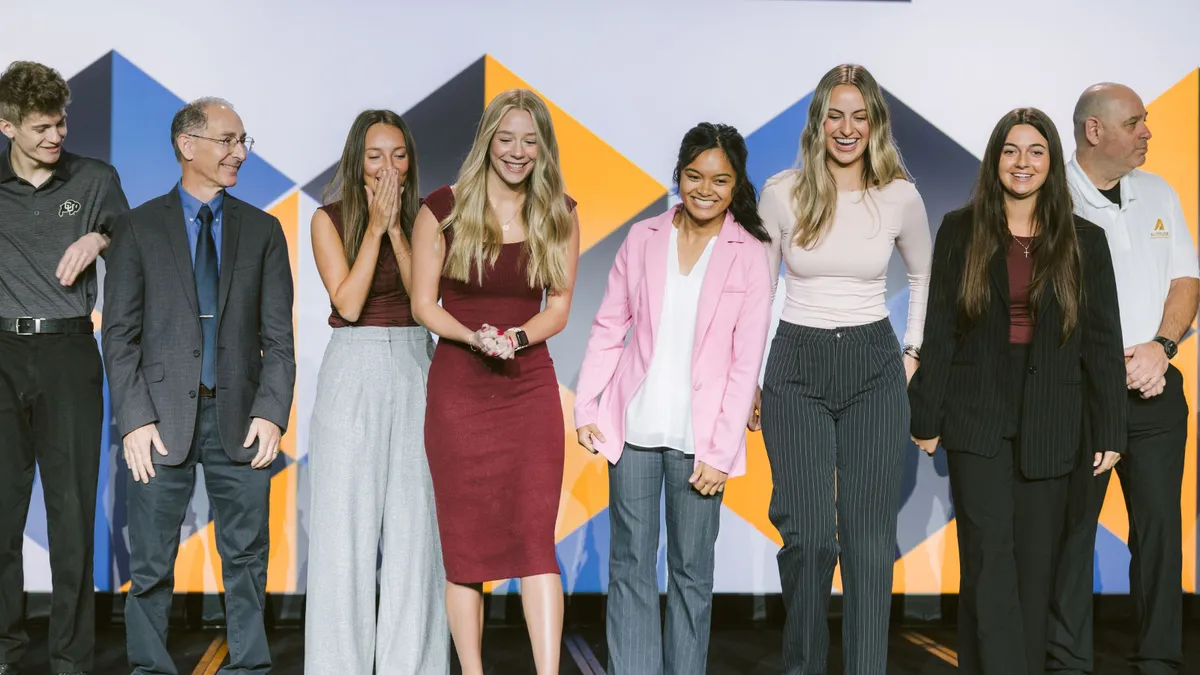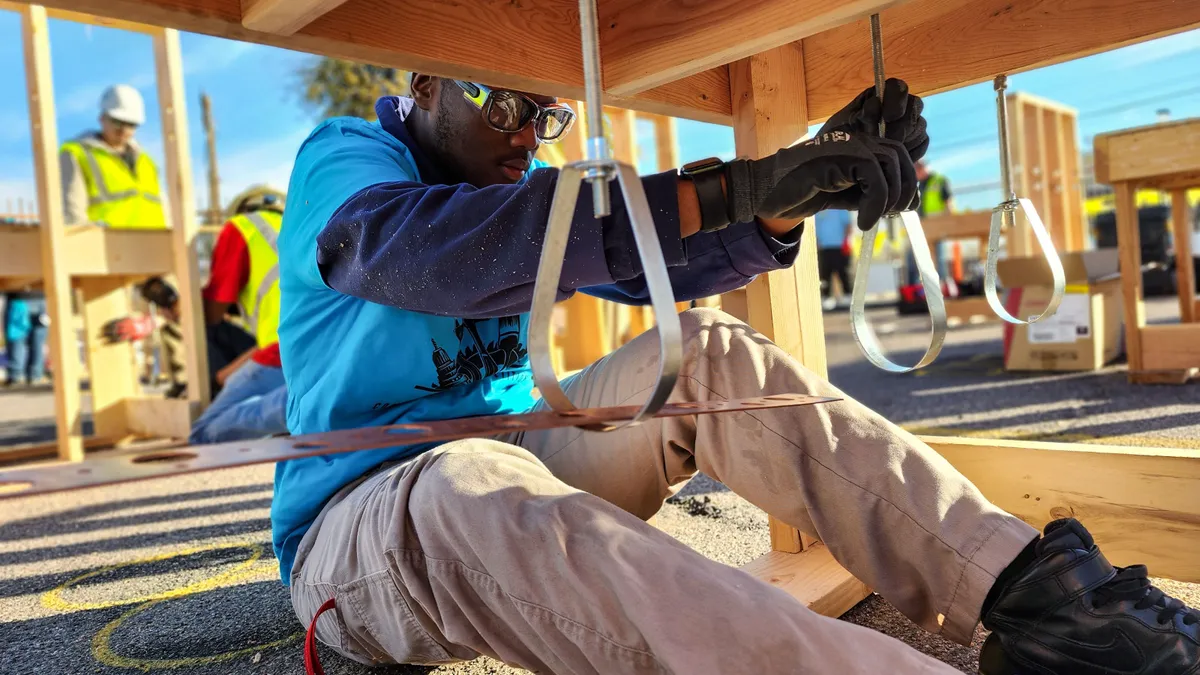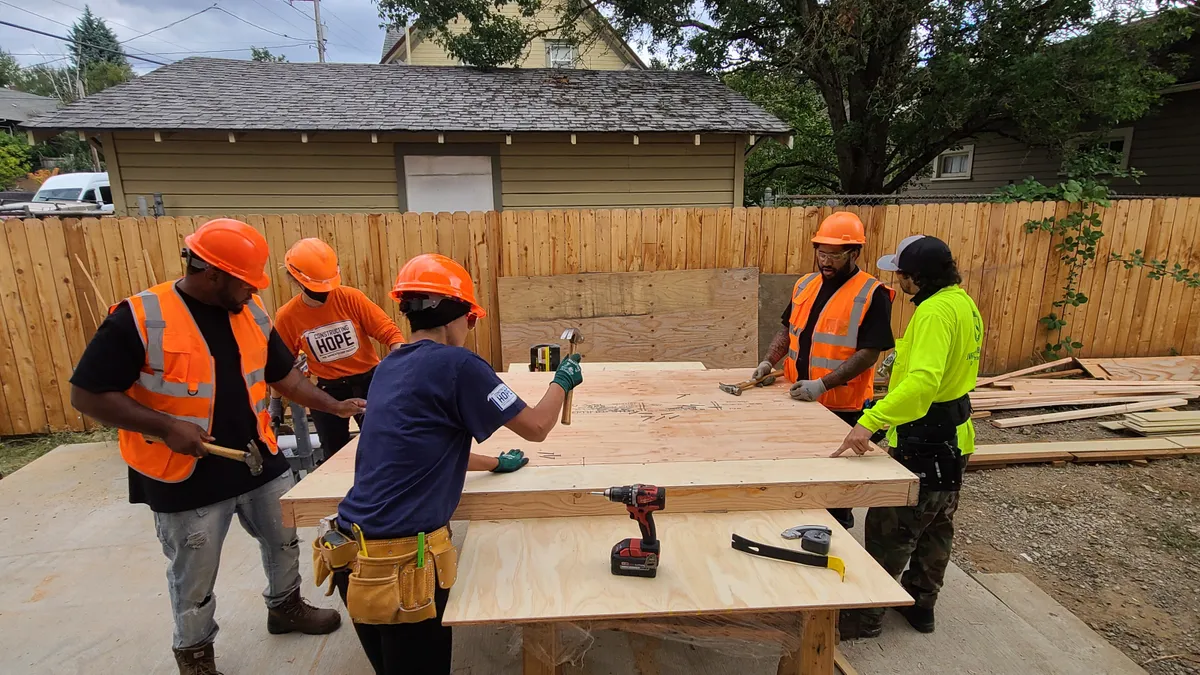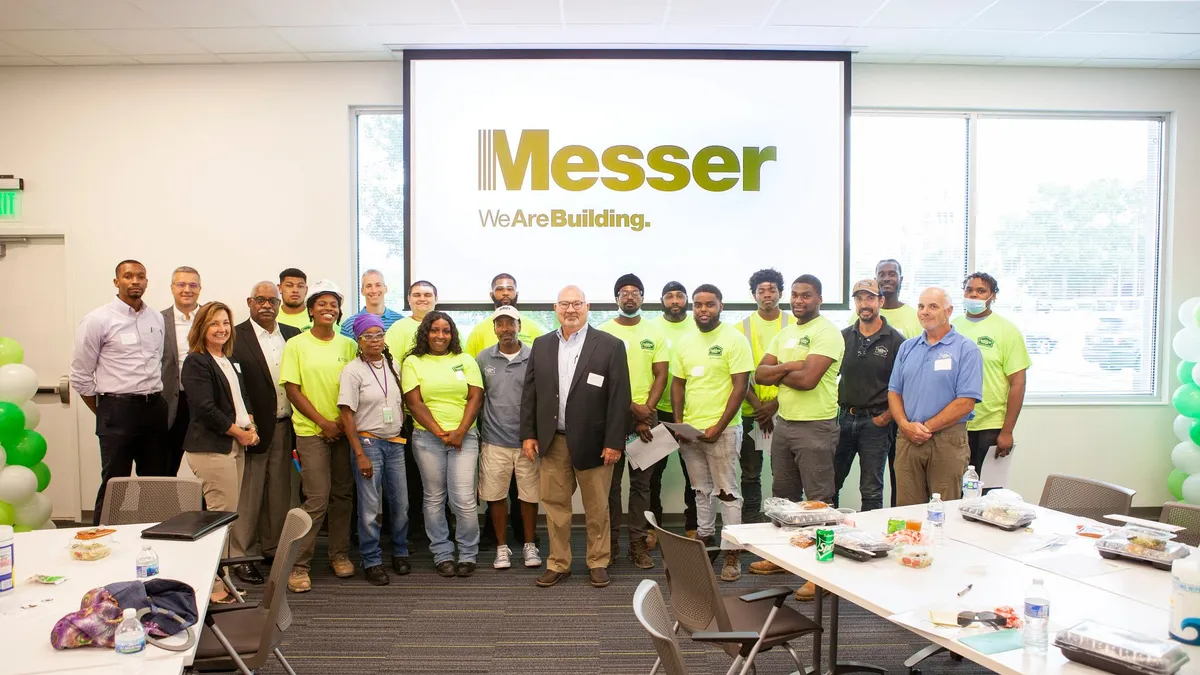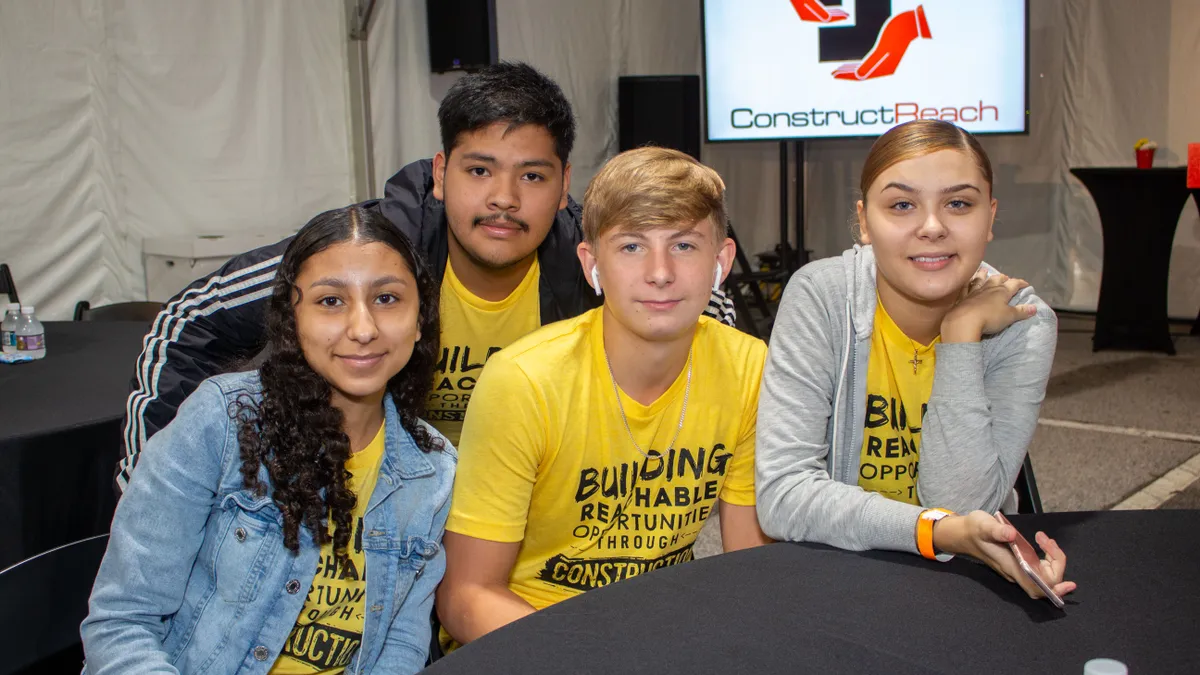The construction industry faces a stark shortage of workers, but programs and people across the country are working at the local level to solve the problem. This series highlights those efforts helping to recruit the next generation of construction pros. Read previous entries here.
Do you know of a group that is helping to attract workers to the construction industry? Let us know.
About one year into community college, Nicholas Gamino’s mother fell ill, and he needed to find a way to help care for her and contribute to his family’s bills.
He discovered Hire360, a local nonprofit organization helping women, minorities and veterans in his hometown of Chicago to get connected to the trades.
“I came across that and I was like, ‘Oh my god this is like just what I need,’” the 24-year-old said.
Today, Gamino is an apprentice electrician for the International Brotherhood of Electrical Workers’ Local 134, earning money as he learns his trade on the job. He’s one of about 400 people who’ve used Hire360 to find trade programs in the area.
A group effort
The average age of trade union members in the Chicago area is in the 50s, said Jay Rowell, executive director of Hire360.
“So a lot of retirements coming. At the same time you have a number of massive projects that are on the horizon,” Rowell said.
Founded in January 2020, Hire360 counts big names across stakeholder roles in construction, including AECOM Hunt, Boldt, Clark, Clayco, Gilbane, Mortenson and Turner. The developers and GCs largely provide donations, input on training and job connections for candidates.
Rowell said bringing together employers, unions and owners was essential to Hire360’s success — they’re all facing the same problem in the need for more skilled workers.
“There's no better training that you're going to get than by the joint labor and management apprenticeship programs, right? It's literally training designed by labor unions for the work on the projects with the contractor input,” he said.
Mike Meagher, president of Chicago construction firm Nacional Group and a member of the board of directors for Hire360, echoed Rowell’s sentiment.
“We all got together in a room and said, ‘How can we work together and raise the bar and get more minorities into the trades and help our industry?’” Meagher said, indicating collaboration removes fingerpointing. “We can't say that the issue is the unions. The unions can't say the issue is the contractors. All of us can't say the developers aren't helping. So, we're all together in the same boat, rowing the same direction.”
Rowell admitted that early 2020 did not end up being a great time to launch a nonprofit, but he is nonetheless proud of the efforts the group has achieved after the first two years of the COVID-19 pandemic slowed its initial growth.
And the success has been noticed. In January, Hire360 received a $3 million donation from philanthropist MacKenzie Scott.
“I would believe that we are probably one of the youngest charities to ever get such a donation,” Meagher said. “I think it's really impactful. And it also says that what we're doing really resonates with what we're trying to do for the industry.”
The nonprofit also goes beyond recruiting: The “360” in the name refers to a full circle of efforts to benefit the industry including outreach and education of young people and students, investment in minority- and women-owned business enterprises and empowering socially responsible hiring.
Getting people to work
Hire360 has outreach and advertising to try to reach members of underrepresented groups in the trades who are old enough and eligible to work in the U.S. As a result, Hire360 talks to “literally thousands” of people annually, Rowell said. But it’s not always the right fit.
“It's very hard skilled labor. You’ve got to wake up at four o'clock in the morning. It's kind of hot or cold in Chicago — well, actually lately it's been hot and cold in the same day; 75 degrees, then it is snowing. It’s just not an industry that is for everyone,” he said.
For those who get a sense they want to still pursue the trades, they take an aptitude and math test, then a pre-apprenticeship program that teaches them what to expect from each trade.
Gamino said a mentor or manager appointed to him by Hire360 helped him realize his goal of pursuing electrical work, and helped find him placement in the apprenticeship program by preparing him for any assessments and training on soft skills, such as how to carry himself and speak in an interview.
Nonetheless, two major challenges in getting people to work remain: childcare and lack of transportation. Rowell conceded that Hire360 doesn’t have an exact solution yet, but is eyeing ways to help workers who care for family members find their spot in the industry.
It’s out there
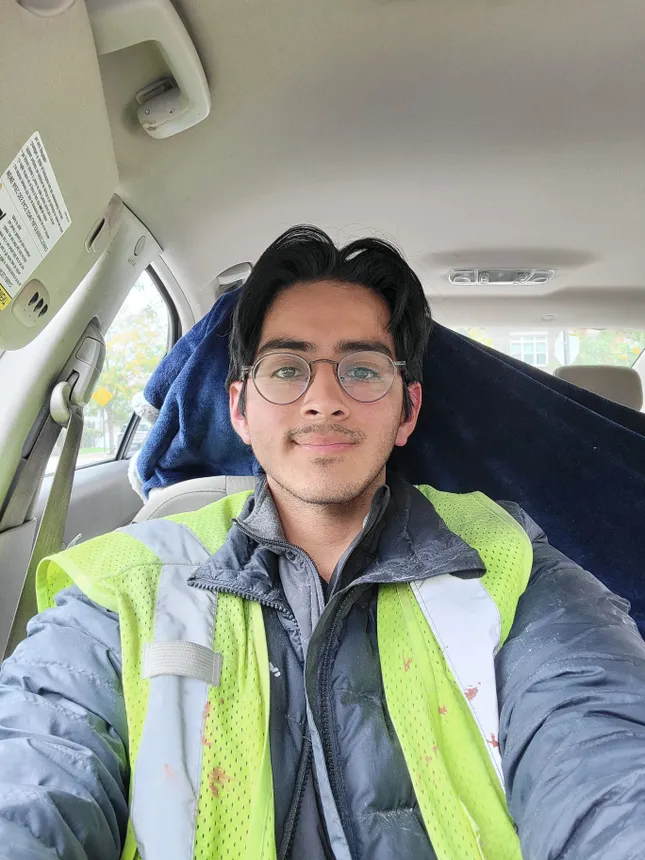
Rowell said Hire360 benefits from having so many union shops and programs nearby, but noted that not all cities have the same balance of unions and contractors. Nonetheless, to those people who have contacted Hire360 about trying to recreate its success in other areas, Rowell said the information is widely available already.
“There's a lot of pieces that are already in place to help make this successful in different areas; there’s a great curriculum from the North American Building Trades Union that's already available for pre-apprenticeship programs,” Rowell said.
Gamino said he had heard of the pride people had in the construction trades, but it wasn’t until he got on the jobsite that he truly understood that sentiment when looking at a skyline or driving past a familiar project.
“Now as an electrician, I have a new sense of wonder and almost pride knowing that your work is going to be there for years,” he said.



